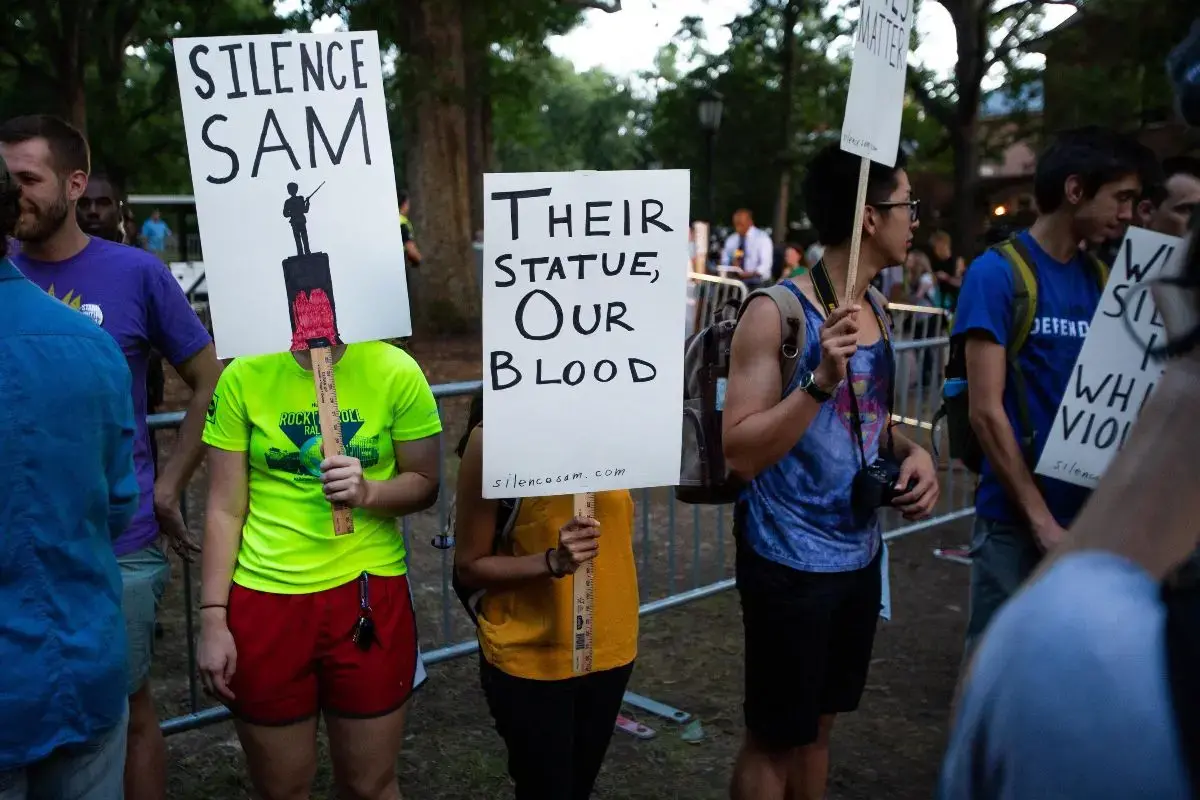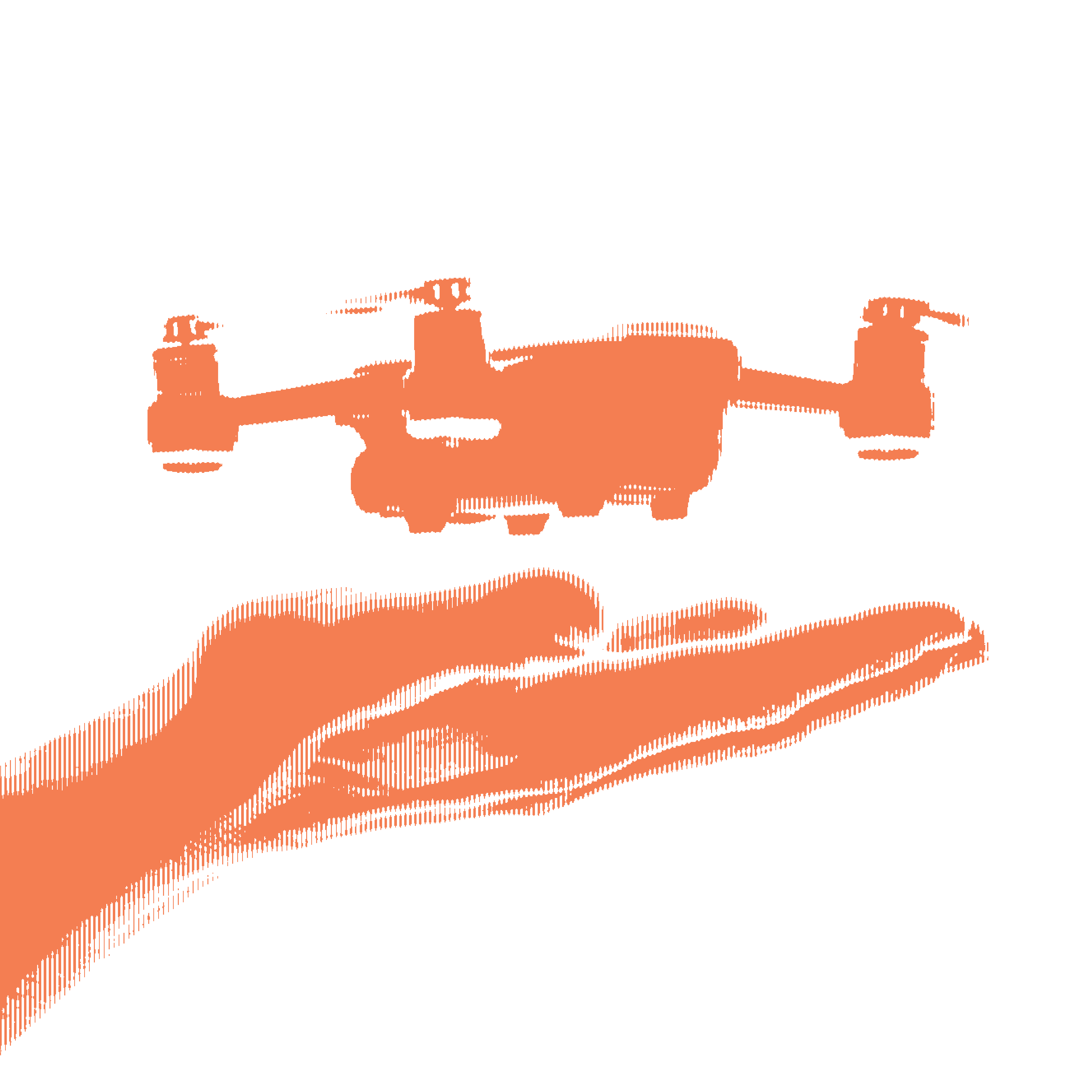Pulitzer Center Update September 23, 2022
When AI Tools Promise To Save Lives
Country:

Reporting on AI Increases Accountability and Visibility
Here is a tool powered by artificial intelligence. Its job? To scan students’ social media activities. The tool, known as Social Sentinel, has a worthwhile purpose: to help protect and save lives of students by flagging those at risk of harming themselves or others. But does it really work? Is it used for anything else?
In a groundbreaking investigation for The Dallas Morning News, AI Accountability Fellow Ari Sen revealed a lesser-known use of Social Sentinel: surveilling campus protests. The real-life examples he found are astonishing: campus police have used Social Sentinel to track protests over a Confederate statue, student criticism of school officials over an alleged mishandling of a rape complaint, and even protests at a town hall with a U.S. senator.
For years, the company publicly maintained that its service is not a surveillance tool. But Sen’s investigation shows that the company has been actively marketing the tool to universities as an inexpensive solution to “mitigate” and “forestall” student protests, going so far as to create a whitepaper about how the service could be used in demonstrations. At least 37 colleges across the United States were found to have used the tool since 2015. Collectively, these colleges educate hundreds of thousands of students. Were any of them aware that their social activities were tracked for this purpose? Probably not.
If this first story was chilling for you, the second story I am about to share is a sad one. A young Syrian girl died after waiting weeks to be rescued when her group was stranded on an islet between Turkey and Greece. Aid groups attempting to help them from afar provided the Greek police with GPS coordinates, but the police announced that they were unable to locate the group after exhausting “every suitable technical means.”
AI Accountability Fellow Lydia Emmanouilidou’s investigation for Deutsche Welle tells a different story. After analyzing historical satellite imagery, reviewing dozens of Greek and EU records, and conducting on-the-ground field work over several months, her findings strongly suggest that a prompt rescue of the group could have been possible using Greece’s new state-of-the-art border surveillance system. This mostly EU-funded surveillance system’s stated aim was to "prevent and combat illegal crossings" into Greece and to ensure "the protection and saving of migrants' lives." Did the Greek police see the young girl as a migrant to be saved, or an illegal crossing to be prevented?
Without journalists like Sen and Emmanouilidou, most AI systems making life-changing decisions would continue to remain invisible to the public. Sen and Emmanouilidou are among the first cohort of 10 journalists supported by the Pulitzer Center’s AI Accountability Network, which aims to help build the capacity of journalists to report on this fast-evolving and underreported topic with skill, nuance, and impact.
Best,

IMPACT
On Sunday, September 11, a familiar voice accompanied friends of the Pulitzer Center: Environmental Editor Gustavo Faleiros spoke with Ayesha Rascoe on NPR’s Weekend Edition about Brazil’s upcoming election. “Historically,” he said, “electoral years in Brazil represent more deforestation. But the case this year is a bit different because the deforestation started much earlier.” Brazil’s president, Jair Bolsonaro, who has preferred development over conservation of the Amazon since his inauguration in 2019, faces moderate Luiz Inácio Lula da Silva, former president from 2003 to 2010.
“The biggest challenge for Lula is proposing something that is different, alternative—but [...] Brazil is suffering an economic crisis as well, so putting budget to these environmental agencies to enforce things on the ground is going to be a challenge,” said Faleiros. The Pulitzer Center will continue to bring in-depth coverage on Brazil’s upcoming presidential election. This election, as Faleiros notes, affects us all: “By destroying the Amazon and other rainforests, it should be said we are basically damaging our lives.” You can check out Pulitzer Center-supported coverage like The Amazon at the Ballot Box on our website.
This message first appeared in the September 23, 2022, edition of the Pulitzer Center's weekly newsletter. Subscribe today.
Click here to read the full newsletter.










